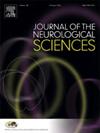Awareness and care practices for rare neurologic diseases among senior neurologists: A global survey
IF 3.6
3区 医学
Q1 CLINICAL NEUROLOGY
引用次数: 0
Abstract
Objective
Rare neurologic diseases (RNDs) are difficult to diagnose and treat due to their low prevalence and complex nature. This survey evaluated awareness and current care status of RNDs among esteemed neurologists affiliated with the World Federation of Neurology (WFN).
Methods
A 34-question survey was distributed to renowned neurologists, including delegates from national neurology societies in the WFN Assembly, various WFN committees, and members of the Rare Neurologic Diseases Specialist group. Responses were stratified by geographical regions, including Africa, the Americas, Asia/Oceania, and Europe, and into four income groups based on the World Bank Indicator. Descriptive statistics summarized responses, stratified by geographical regions or income groups, and significant differences were assessed by Fisher's exact test.
Results
Of 190 invited neurologists, 64 responded (34 % response rate). Among respondents, 89 % agreed that RND patients should receive timely and effective care on par with more common neurological conditions. Additionally, 77 % of respondents overall thought most RNDs could be accurately diagnosed in their country. However, there were significant differences in the perceived ability of respondents' country of practice to diagnose RNDs by region, specifically in Africa (25 %), and by income of country of practice, specifically in the lower-income group (17 %).
Conclusions
This global survey highlights varying RND diagnosis and care by country socioeconomic status, suggesting potential disparities in resources and preparedness. To improve outcomes and quality-of-life for RND patients, efforts should focus on improving diagnostic capabilities, fostering collaboration among neurology centers, and promoting education on the unique challenges and treatment options of RNDs.
求助全文
约1分钟内获得全文
求助全文
来源期刊

Journal of the Neurological Sciences
医学-临床神经学
CiteScore
7.60
自引率
2.30%
发文量
313
审稿时长
22 days
期刊介绍:
The Journal of the Neurological Sciences provides a medium for the prompt publication of original articles in neurology and neuroscience from around the world. JNS places special emphasis on articles that: 1) provide guidance to clinicians around the world (Best Practices, Global Neurology); 2) report cutting-edge science related to neurology (Basic and Translational Sciences); 3) educate readers about relevant and practical clinical outcomes in neurology (Outcomes Research); and 4) summarize or editorialize the current state of the literature (Reviews, Commentaries, and Editorials).
JNS accepts most types of manuscripts for consideration including original research papers, short communications, reviews, book reviews, letters to the Editor, opinions and editorials. Topics considered will be from neurology-related fields that are of interest to practicing physicians around the world. Examples include neuromuscular diseases, demyelination, atrophies, dementia, neoplasms, infections, epilepsies, disturbances of consciousness, stroke and cerebral circulation, growth and development, plasticity and intermediary metabolism.
 求助内容:
求助内容: 应助结果提醒方式:
应助结果提醒方式:


